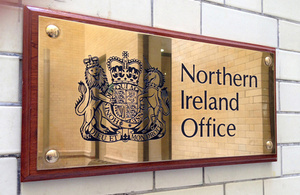Prime Minister to give local leaders power to breathe new life into high streets
- Prime Minister to bring in landmark reforms to rejuvenate high streets and restore pride in local areas
- New legislation forms central part of government mission to level up towns across the country, creating new jobs and infrastructure
- Follows publication of government’s flagship Levelling Up White Paper to spread opportunity and prosperity across the UK
The Levelling up and Regeneration Bill, expected to be unveiled in the Queen’s speech next week, will provide local leaders with the powers they need to revitalise town centres.
Currently shops can stand empty for years, blighting the high street and wasting opportunities for new jobs. New legislation will enable local leaders to force landlords to rent out commercial properties, revitalising highstreets, rejuvenating town centres, and restoring community pride in their home towns.
Councils will be given greater powers to take control of buildings for the benefit of their communities, transforming boarded up shops or derelict buildings into thriving businesses, shared community spaces or housing.
Prime Minister, Boris Johnson said:
“High streets up and down the country have long been blighted by derelict shopfronts, because they’ve been neglected, stripping opportunity from local areas.
“We are putting that right by placing power back in the hands of local leaders and the community so our towns can be rejuvenated, levelling up opportunity and restoring neighbourhood pride.”
The number of empty shopfronts has soared to 1 in 7 according to the British Retail Consortium, rising to 1 in 5 in the north east, with boarded up and derelict shops blighting highstreets and sapping the life from once bustling town centres. New Compulsory Rental Auctions will ensure that landlords auction shops that have been vacant for over a year to prospective tenants, putting buildings to good use.
The move will create opportunities for new businesses and community groups, paving the way for new jobs to boost employment, strengthening local economies and restoring local pride.
Levelling Up Secretary Michael Gove said:
“By empowering local communities to rent out shops which have been sat empty for a year or longer, we will end the scourge of boarded up shops that have blighted some of our great towns across the country for far too long.
“These measures will breathe new life into high streets, transforming once-bustling communities into vibrant places to live and work once again and restoring local pride as we level up across the country.”
Councils will also be given greater powers to drive regeneration through Compulsory Purchase Orders, making it quicker and easier for councils to use powers to deliver much needed local housing and infrastructure.
Compulsory Purchase Orders allow acquiring authorities, including local public bodies, to acquire buildings without needing the consent of the owner for public benefit. This may include acquiring land to build social housing or other regeneration projects.
Banstead and Reigate council has used this power to regenerate an old car park to create a new cinema, shops, leisure facilities and housing at the heart of Redhill’s town centre in Surrey.
To support vibrant high streets and communities thrive, pavement licensing red-tape will be permanently scrapped, freeing up businesses to serve food al fresco and attract diners all year round.
During the pandemic, restaurants, pubs and bars were granted temporary powers to serve guests on pavements, helping to mitigate lost floorspace for tables due to social distancing requirements.
Through new legislation, these powers will be made permanent to expand capacity for businesses to boost local economies and inject life into local communities.
The Levelling up and Regeneration Bill follows publication of the government’s flagship Levelling Up White Paper which set out plans to transform the UK by spreading opportunity and prosperity to all parts of it.
The UK Government is also providing £1.7bn of temporary business rates relief in 2022-23 for up to 400,000 retail, hospitality and leisure properties to support the high street.
The High Streets Task Force will continue to support communities to regenerate their high streets to reflect evolving local needs. It is already supporting 84 local authorities with access to expert support in areas such as placemaking, planning and design.
